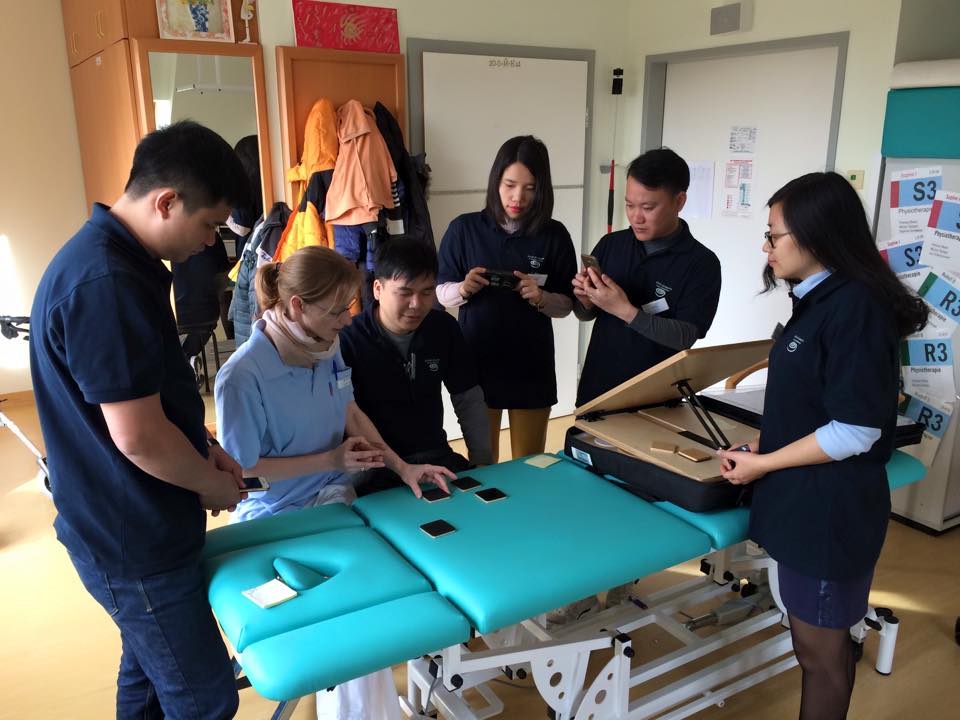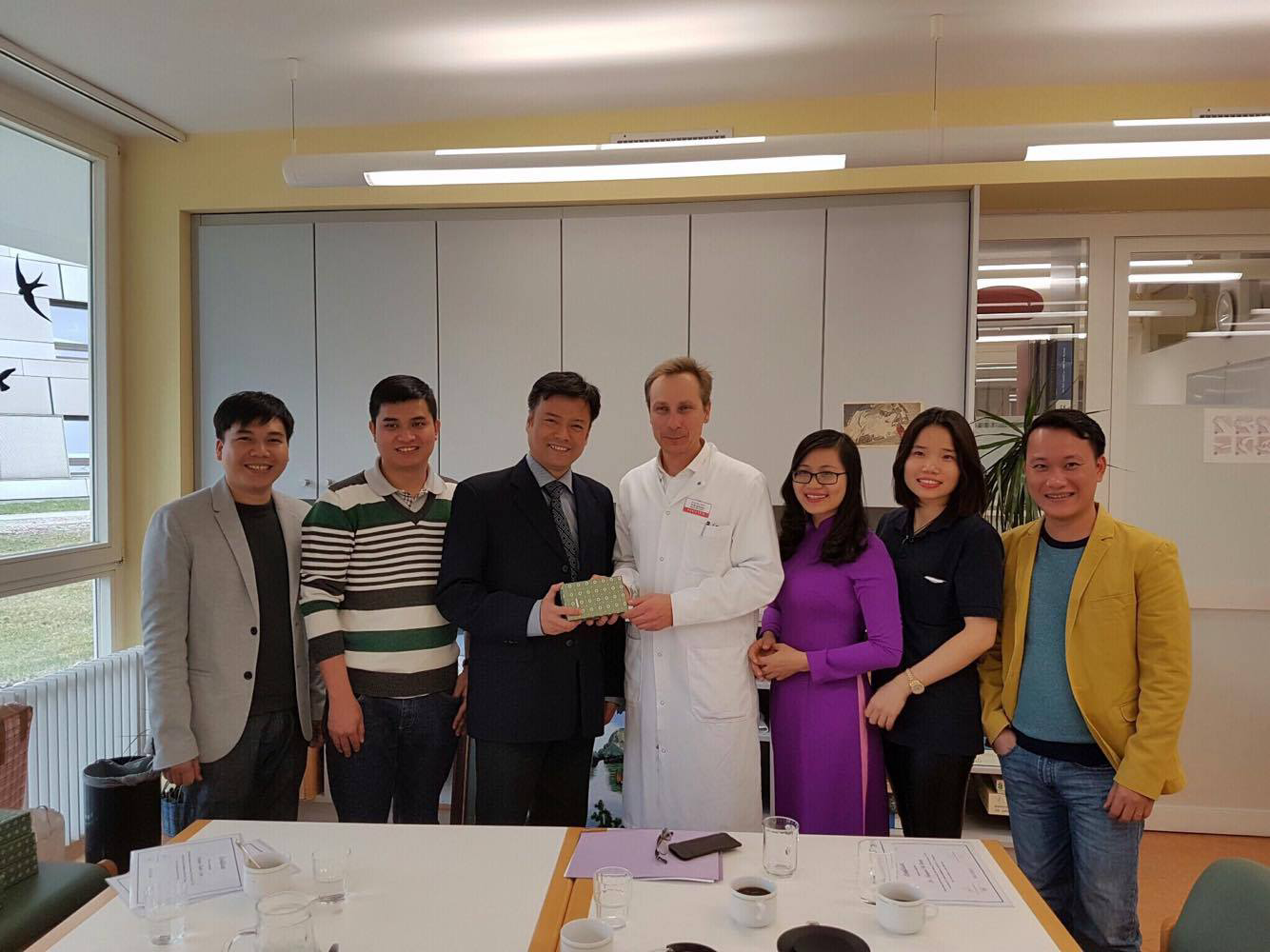AVANT Program: Scientific foundation, Implementation method and Contribution to community
Dr. Le Hoang Anh
Country Director, EVER Pharma Vietnam
Co-founder of AVANT Program
**The article is featured on Vietnam Association of Rehabilitation Journal, April 2017
According to World Stroke Organization (WSO), there are 17 million new stroke patients every year, causing 6 million deaths and 5 million more survivors with long-term or even permanent disabilities. These impressive numbers are urging the global healthcare system to pay more and more attention to after-stroke treatment, in order to help patients soon regain independence and relieve the burden for their family and the society.
Technological advancement has enabled the use of rtPA to allow thrombolysis and thrombectomy during the acute phase of stroke treatment. However, the efficiency of these techniques is still very limited on a large scale, due to the fairly short therapeutic window of rtPA, which is only 4.5 hours after stroke onset. Therefore, less than 5% of stroke patients in the USA have been successfully treated with rtPA. In Vietnam, this percentage is even lower because of the limited conditions. Other patients who have survived the acute phase suffer from severe disabilities, potentially for the rest of their lifetime. Thus, according to Prof. Michael Brainin – President of World Stroke Organization, “all these new and fascinating developments do not replace the need for what is considered the basics of neurorehabilitation.” [1]
According to Professor Michael Chopp – Director of Neuroscience Research, Department of Neurology, Henry Ford Hospital, USA, the finding that sets the foundation for after-stroke treatment is the idea that the nervous system is able to restructure and remodel to compensate for the damaged tissues through the processes of regenerating nervous units, including neurons, neurovascular, and glial cells to repair the damaged cerebral axons and dendrites [2]. It is this concept of neuroplasticity that expands the therapeutic window for stroke patients in the rehabilitation phase, thus increasing the chance of recovery.
There are two methods frequently combined to stimulate neuroplasticity, which are neuro-protective and neuro-trophic drugs, together with rehabilitation therapies, such as physiology therapy (PT), speech therapy (ST), occupational therapy (OT). Such therapies not only help the brain relearn forgotten functions (relearning), but also amplify enhance neuro-repairing and neuro-restorative processes to enhance neurological functions post-stroke.
World Stroke Organization has recommended that these post-stroke rehabilitation therapies be applied properly and early, starting from 24 hours after stroke, in combination with neurotrophic drugs. Judging that stroke patients do not have access to standard and systematic rehabilitation therapy after acute care, the act of disseminating knowledge on neurorehabilitation and practice exercises for stroke patients can prove to be very meaningful, as they provide stroke patients with an opportunity to regain independence and relieve the burden of their families and society.
In the hope of helping doctors, therapists and healthcare workers contribute to the rehabilitation of stroke patients, EVER Pharma is working in cooperation with World Stroke Organization to conduct the AVANT program (Austrian Vietnamese Advancement Neurorehabilitation Treatment) – a post-stroke neurorehabilitation program jointly organized by Vietnam and Austria. As a part of the program, doctors and therapists working in Neurorehabilitation from leading hospitals in Vietnam will join a training course at leading rehabilitation centers and clinics in Austria to receive in-depth training on neurorehabilitation after stroke.
After “Train the trainers” courses in Austria, Ever Pharma will facilitate these doctors and therapists in educating other doctors and therapists in hospitals all over Vietnam, as well as family members and caregivers of stroke patients. The program is written by leading experts in neurology and rehabilitation in Austria, namely Prof. Andreas Winkler, PhD, from Bad Pirawarth, and Prof. Bernhard Iglseder, PhD, and is structured to fit each group of learners.

Vietnamese doctors and therapists trained at Bad Pirawarth Hospital in Austria
As a attendant of the first course, Prof. Lương Tuấn Khanh, PhD, Director of the Rehabilitation Center of Bach Mai Hospital, leading the Vietnamese team, shared his thoughts on the program: “As part of the three-week course, we went through both the basics and new, updated methods on post-stroke rehabilitation. I was able to apply 6 technical and assessment processes to complete the rehabilitation after stroke program, which will be submitted to the Ministry of Health for implementation in the near future”. Other members of the Vietnamese team of doctors and therapists, including Dr. Nguyễn Thị Dung from of the Rehabilitation Center of Bach Mai Hospital, expressed their eagerness to spread the information to colleagues all over Vietnam in their next classes.
.png)
The team of Vietnamese doctors and therapists taking a photo with Prof. Andreas Winkler and therapists from the Rehabilitation center of Bad Pirawarth Hospital
Additionally, the booklet Neurorehabilitation after stroke and the illustration video have been produced by EVER Pharma as basic materials for the training courses. The booklets will be given for free to doctors, therapists and caregivers to spread the knowledge of neurorehabilitation after stroke to the community.

Vietnamese doctors, therapists and Prof. Bernhard Iglseder, PhD at Christian Doppler Hospital.
Always setting community health as the first priority, AVANT program welcomes all doctors, therapists and caregivers hoping to learn about neurorehabilitation after stroke to sign up for these courses.
Reference
[1] Michael Brainin, Neurorehabilitation after stroke, Foreword
[2] Michael Chopp và Yili, Study on the promotion of neural plasticity and functional recovery after treatment of stroke - Pharmacological therapy and Cell therapy


